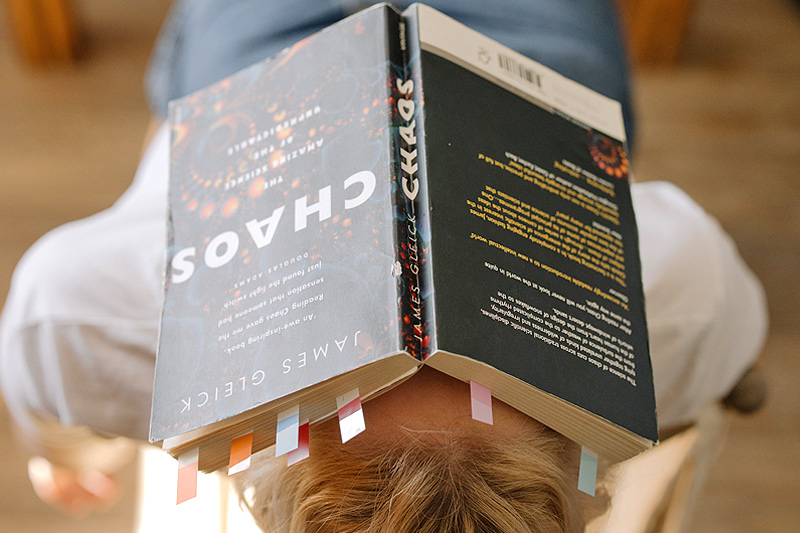If you are parenting an anxious child, you probably saw the title of this blog post and thought, “Crap, how is it August already”, and “are you really gonna make me start facing the new school year now?”. I feel you. It takes a special kind of patience, stamina and fortitude to be intentional and proactive even though you know it tends to pay off in the end. Anxiety is an energy sucker. It steals flexibility, joy and relaxation in the day to day, and when new or big things are coming up, anxiety swells.
As we approach a new school year, our anxious kids might need some extra support in preparing. Each kid’s nervous system can be triggered by different things, but here’s what we know tends to be in the mix and what you can do about them:
1. Uncertainty accompanied by a strong need to know
Anxious kids need information to help them feel secure about what’s coming. They don’t feel equipped to cope with the unknown or “could be’s”, so helping them collect factual and practical information about what’s coming can be reassuring.
Their anxiety might want you to repeat the same information over and over, which for parents can be annoying and exhausting and lead them to shutting down their kid’s questions. To avoid this, try writing down or drawing out the information when you first go over it with them so you can reference back to that for review. Alternatively, provide hints to jog their memories or say something like, “Hmmm, the other day we talked about this very thing. Let’s see if you can remember the answer.” They may be used to relying on you to provide the quick fix to soothe their anxiety rather than trusting on their own abilities to know and remember. By turning the question back to them, you are encouraging them to pause and lean in on what they already know, building a sense of trust in their ability to cope.
2. Past experiences and memories of overwhelm
Our nervous systems learn from past experiences. If something overwhelmed us in the past, we learn to watch for cues that might warn us of similar stressful situations ahead of us. Much of our memories of overwhelming events get stored in our bodies, so when we start to get anxious about things we’re anticipating, it is no surprise that our bodies start to send signals of warning. If your child has learned to fear specific aspects of school, try exploring and naming what those are so you’re clear about what needs extra support rather than lumping the whole school experience into one.
Anxiety loves to generalise. To shift this automatic way of thinking, you can try making containers or drawing boxes that represent each part of the school experience and then together figure out what parts of school carry more worry and which ones they are excited about. You are helping to illustrate that anxiety is not in charge of the whole thing and that when it’s just a part of the experience that feels overwhelming, it is more manageable to tackle.
3. Feeling out of control
When we’re anxious, we feel out of control. Think about concrete ways your child can feel a sense of agency or influence. Giving them choices about things can help, like what to put in their backpacks, learning to read the map of the school layout, deciding what breakfast will be on the first day of school, or having their outfit laid out the night before.
It can also help kids to feel more in control when they aren’t so confused about what’s happening in their bodies. Help your child detect the feelings and sensations they are having and validate them. Name what is happening and demystify it. It may sound something like, “Ah, your stomach is feeling twisty and it is really hard to relax – that is super normal when you’re worried about something. Let’s try talking about what you’re worried about – that might help your stomach feel better”.
4. Lack a safety net
When we’re feeling anxious, it is difficult to trust that there’s a back up plan – a safety net to catch us when we’re feeling flooded or overwhelmed. Try going over a couple of scenarios your child might be worried about and talk about what to do or who to go to for support should those things happen. Help by asking questions that allow your child to come up with that plan – you can always fill in the gaps if they get stuck. Just knowing the plan and that they can problem solve if needed, can mean not having to activate it.
5. The need to rehearse
Our bodies and brains need practice. Just like we learn from overwhelming experiences, we also learn from positive ones. Do some fun run-throughs of common tension points for starting up a new school year, like introducing yourself to peers, packing up your school bag, checking out the playground before school starts, or walking the route to your classroom, washroom and front office. Instil confidence and pour on the praise for role-playing and figuring it out. You’ve got this! Way to go.
Kids aren’t the only ones who need support. Parenting anxious kids is challenging. If you’re wanting some further guidance on how to reduce anxiety together as a family and boost your coping skills, CBT for the Family is available online to help you do just that. Nine videos and a family activity workbook walk you through stress management skills that are proven to work for kids and adults alike.
Sending you good mental health as you approach a new season of learning,
Karen


